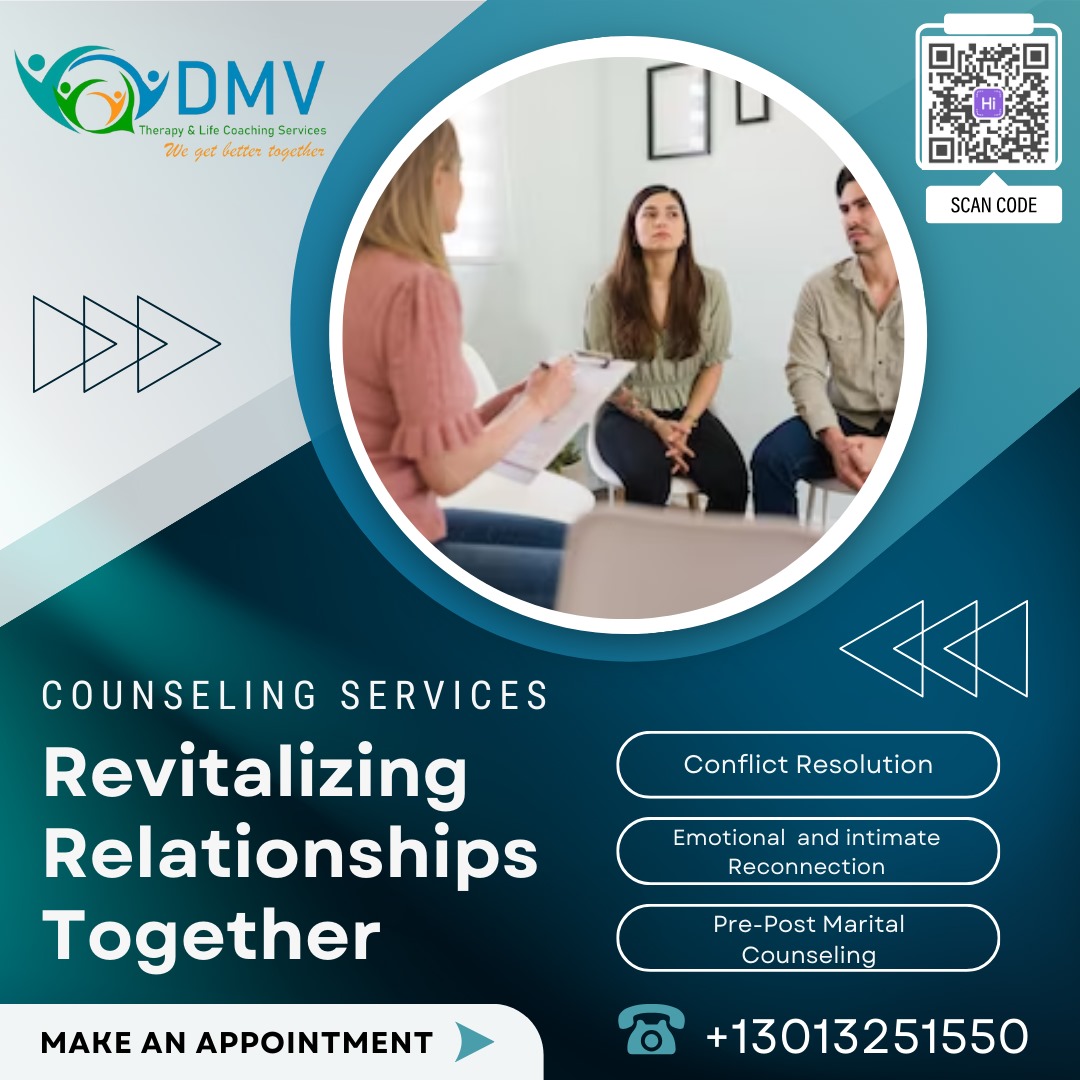
How Expressing Vulnerability in a Relationship Can Help Build Deeper Connection: Understanding the Distinction Between Weakness and Strength
In today’s fast-paced and often emotionally guarded world, the concept of vulnerability is frequently misunderstood. Particularly in romantic relationships, vulnerability can be mistaken for weakness, dependency, or being “too emotional.” In some circles, especially among men, it’s even equated with being a “Simp”—a derogatory term used to describe someone perceived as overly submissive or eager to please their partner. But the truth is, genuine vulnerability is a profound strength. It has the power to deepen trust, foster emotional intimacy, and create a lasting foundation of love and understanding.
This new article explores how expressing vulnerability in a relationship can build a deeper connection, and why it is far from being weak or “simp-like.” Rather, it is a courageous act of authenticity, maturity, and emotional intelligence.
What is Vulnerability in a Relationship?
Vulnerability in a relationship is the willingness to be open and honest about your thoughts, feelings, needs, and fears—even when doing so feels uncomfortable or uncertain. It means dropping your guard, removing your emotional armor, and trusting your partner with the real you, not just the curated, polished version of yourself.
This could involve:
- Admitting fears of inadequacy or rejection
- Expressing needs for reassurance or affection
- Opening up about past trauma or insecurities
- Saying “I love you” first
- Apologizing sincerely after a mistake
- Asking for help or support
These acts of vulnerability demonstrate authenticity and a deep level of self-awareness. They invite your partner into your inner world and build a space where both people can be seen and accepted without judgment.
The False Link Between Vulnerability and Weakness
Modern society often glorifies independence, stoicism, and emotional self-sufficiency, especially for men. This conditioning leads many to believe that expressing emotions or needs is a sign of weakness. The term “simp” has become part of pop culture lingo to mock individuals who are openly affectionate, caring, or emotionally available—suggesting that loving deeply or showing vulnerability makes one less respected or less masculine.
But nothing could be further from the truth. Vulnerability is not about begging for attention or surrendering your boundaries. It is not about losing yourself in someone else or prioritizing their happiness above your own to your detriment. True vulnerability is an act of bravery. It takes far more strength to be open and emotionally honest than it does to hide behind silence or emotional detachment.
In fact, people who are comfortable being vulnerable demonstrate emotional resilience. They are secure enough in themselves to acknowledge their needs, admit their flaws, and risk rejection in pursuit of genuine connection. That is not weakness—that is strength.
How Vulnerability Builds Deeper Connection
1. Creates Emotional Intimacy
Surface-level conversations and interactions can only sustain a relationship for so long. Emotional intimacy is what makes a bond meaningful and lasting. Vulnerability fosters this intimacy by encouraging deeper understanding and empathy between partners. When you let your guard down and share your inner experiences, your partner sees the real you, which invites them to do the same. This mutual sharing creates a bond that is rich, honest, and deeply connected.
2. Builds Trust
Trust is essential in any relationship, and vulnerability is one of the key ways to build and reinforce it. When you are vulnerable with your partner, you are saying, “I trust you with my heart.” This openness often encourages reciprocation, establishing a safe emotional space where both individuals can be themselves without fear of judgment.
3. Enhances Communication
When couples avoid vulnerability, communication often becomes superficial or defensive. Vulnerability opens the door for honest, non-defensive dialogue. It allows you to speak from the heart, express unmet needs, and navigate conflicts with empathy and understanding. Vulnerable communication invites collaboration instead of confrontation.
4. Encourages Growth and Healing
Everyone carries emotional wounds, insecurities, and fears. In a healthy relationship, vulnerability allows for those wounds to be seen and healed. Being open about your struggles invites compassion and support, both of which are critical for personal and relational growth. Vulnerability can also help break toxic patterns and build healthier dynamics.
5. Strengthens Commitment
When partners can be vulnerable with each other, they often feel more bonded and committed. Vulnerability signals emotional investment. It tells your partner, “You matter to me enough for me to take this emotional risk.” This kind of transparency strengthens the commitment to weather challenges together and deepen the emotional connection.
Practical Ways to Practice Healthy Vulnerability
If vulnerability doesn’t come naturally, the good news is that it can be developed. Here are a few practical strategies to help you embrace vulnerability in your relationship:
- Start Small: You don’t have to reveal everything at once. Begin with small, honest expressions of how you feel and build from there.
- Use “I” Statements: Express your feelings using “I” statements, like “I feel anxious when I don’t hear from you,” rather than blame-based language.
- Be Honest About Your Needs: Whether it’s needing reassurance, physical affection, or time alone, articulating your needs is a key part of vulnerability.
- Share Your Fears: Talk about your insecurities or past experiences that shape how you relate. It builds empathy and understanding.
- Practice Active Listening: Show your partner that you value their vulnerability too by listening without interrupting, judging, or trying to fix everything.
Redefining Masculinity and Strength
One of the biggest shifts needed in modern relationships is redefining what it means to be strong. Masculinity, in particular, has long been associated with emotional stoicism, dominance, and control. But true strength lies in being fully human—in owning your emotions, expressing love without shame, and showing up authentically in your relationships.
It’s time to move beyond outdated stereotypes and embrace a more inclusive, emotionally intelligent view of strength. Men who are vulnerable are not weak; they are brave. They are the kind of partners who build lasting, meaningful relationships because they lead with heart, not ego.
The Balance: Vulnerability with Boundaries
Of course, vulnerability doesn’t mean sharing everything indiscriminately or losing your sense of self. Healthy vulnerability includes boundaries. It involves being intentional about what you share and ensuring that your openness is met with respect and mutual care.
If you find that your vulnerability is consistently dismissed, mocked, or weaponized in your relationship, that is not a safe or healthy space. Vulnerability should be met with empathy, not exploitation. Choosing to be vulnerable should always include choosing people who are emotionally safe.
Vulnerability is Strength
Expressing vulnerability in a relationship is one of the most courageous and impactful things you can do. It builds trust, deepens emotional connection, enhances communication, and fosters growth. It allows both partners to be fully seen, accepted, and loved for who they truly are.
Being vulnerable doesn’t make you a simp or weak. It makes you real. It makes you human. And most importantly, it makes you a better partner.
So the next time you feel the urge to hold back out of fear of looking weak, remember: vulnerability isn’t about losing power—it’s about sharing it. And in that mutual sharing lies the foundation for the kind of love that lasts.


The harmful impact of jealousy in relationships: How to address it effectively without allowing it to undermine the emotional bond with your partner. Effective long term strategies for building trust and connection.
Jealousy is a natural emotion, but when it becomes excessive or unchecked, it can cause significant harm to relationships. It can erode trust, create distance, and damage the emotional connection between partners.
Social media often amplifies jealousy in relationships by creating unrealistic comparisons and fostering insecurity. Platforms like Instagram or Facebook showcase idealized versions of people’s lives, including interactions with others, which can make a partner feel inadequate or excluded. Seeing your significant other interact with others, such as liking photos, commenting, or sharing posts, can trigger feelings of suspicion or fear of infidelity, even if there’s no real basis for concern.
Social media also blurs boundaries, making it easier to reconnect with exes or strangers, which can provoke jealousy. The constant connectivity can create pressure to monitor a partner’s activities, leading to unhealthy behaviors like checking their profiles or messages for signs of betrayal.
Algorithms that highlight attractive or engaging content can fuel insecurities, especially if one partner notices their significant other engaging with such posts. Additionally, vague or ambiguous online interactions—like cryptic comments or tagged photos—can lead to overthinking and misinterpretation.
The curated, highlight-reel nature of social media fosters unhealthy comparisons. Partners may feel they or their relationship falls short compared to the perfect couples portrayed online. Over time, this can erode self-esteem and trust, making jealousy more prevalent.When not addressed openly, these emotions can deepen and lead to unnecessary conflict, further harming the relationship.
Understanding how to address jealousy effectively is essential for maintaining a healthy and fulfilling relationship. Here, we explore the harmful effects of jealousy, strategies to manage it, and long-term approaches to building trust and connection.
Understanding the Harmful Effects of Jealousy
Jealousy often stems from insecurity, fear of abandonment, or past experiences of betrayal. While occasional jealousy is normal, chronic or intense jealousy can lead to:
- Erosion of Trust: Constant accusations or doubts can make your partner feel untrusted, even if they’ve done nothing wrong.
- Emotional Distance: Jealousy often leads to controlling behaviors or frequent conflicts, which push partners apart emotionally.
- Reduced Self-Esteem: Both the jealous partner and their significant other can experience diminished self-worth due to ongoing tension and negativity.
- Communication Breakdowns: Jealousy can create an environment where honest and open communication becomes difficult, further straining the relationship.
- Toxic Dynamics: Over time, unchecked jealousy can lead to manipulative or abusive behaviors, creating an unhealthy relationship dynamic.
Short-Term Strategies to Address Jealousy
1. Self-Reflection
- Take time to identify the root causes of your jealousy. Are these feelings tied to past experiences, personal insecurities, or current behaviors in your relationship?
- Journaling or speaking with a trusted friend or therapist can help clarify these emotions.
2. Communicate Openly
- Share your feelings with your partner in a non-confrontational way. Use “I” statements, such as, “I feel insecure when…” rather than “You make me feel…”
- Ask your partner for reassurance or clarification instead of making accusations.
3. Practice Emotional Regulation
- When jealousy arises, pause and take deep breaths to calm yourself.
- Challenge irrational thoughts by asking yourself, “What evidence do I have for this feeling?”
4. Set Boundaries
- Discuss and agree on boundaries that feel fair to both partners. These could include healthy ways to maintain transparency, such as open communication about friendships or social activities.
5. Focus on Gratitude
- Redirect your energy toward appreciating the positive aspects of your relationship. Recognizing what’s working well can help counteract negative feelings.
Long-Term Strategies for Building Trust and Connection
1. Foster Emotional Security
- Build a safe environment where both partners feel valued and understood.
- Regularly affirm your love and commitment to each other through words and actions.
2. Strengthen Self-Esteem
- Work on your self-confidence by pursuing personal goals, hobbies, or interests. A strong sense of self can reduce dependency on external validation.
- Encourage your partner to do the same, creating a dynamic where both partners feel secure and independent.
3. Develop Transparent Communication
- Make honesty a cornerstone of your relationship. This includes being upfront about feelings, concerns, and expectations.
- Schedule regular check-ins to discuss how you’re feeling and address any underlying issues before they escalate.
4. Reframe Jealousy as an Opportunity
- Instead of viewing jealousy as a threat, see it as a signal for areas that need attention. For example, if jealousy arises from a lack of time spent together, work to prioritize quality moments as a couple.
5. Seek Professional Support
- If jealousy persists or becomes overwhelming, consider couples counseling or individual therapy. A trained professional can help identify patterns and provide tools to address them effectively.
Practical Exercises to Strengthen Trust
- Trust-Building Activities:
- Share a new experience together, like trying a new hobby or taking a trip. These activities can strengthen your bond and create positive memories.
- Daily Check-Ins:
- Spend a few minutes each day sharing highs and lows with each other. This practice fosters connection and openness.
- Gratitude Lists:
- Write down three things you appreciate about your partner each day and share them. This simple habit reinforces positive feelings.
- Reassurance Rituals:
- Develop small rituals that provide comfort and security, such as a goodnight text or a hug before leaving for work.
Jealousy doesn’t have to define or destroy your relationship. By understanding its root causes and implementing strategies to manage it, you can prevent it from undermining your emotional connection. Building trust and fostering open communication are the cornerstones of a healthy partnership. When combined with gratitude, self-awareness, and intentional effort, these approaches can lead to a relationship that thrives on mutual respect, understanding, and love.


Building emotional intimacy after the spark is gone. The many struggles couples face in the 21st century! Finding effective strategies that can work when putting in the effort!
Emotional intimacy is the bedrock of a healthy, long-lasting relationship. It goes beyond physical attraction and shared interests; it’s about vulnerability, trust, and deep emotional connection. However, in today’s fast-paced and tech-driven world, many couples face significant challenges maintaining this connection, especially when the initial “spark” fades. The good news is that emotional intimacy can be rebuilt with effort, understanding, and the right strategies.
Why Emotional Intimacy Fades
Before delving into solutions, it’s important to understand why emotional intimacy wanes over time. Some common factors include:
- Life Stressors: Careers, parenting, financial pressures, and health challenges often take precedence, leaving little energy for connection.
- Technology Overload: Constant connectivity to devices can lead to disconnection from partners.
- Unrealistic Expectations: Social media often paints an unrealistic picture of relationships, leading to disappointment when real life doesn’t match up.
- Routine and Complacency: Over time, couples may fall into predictable patterns, losing the excitement and novelty that fueled the early days of their relationship.
- Lack of Communication: Misunderstandings, unresolved conflicts, or simply not sharing thoughts and feelings can create emotional distance.
While these challenges are common, they are not insurmountable. By understanding the struggles and committing to change, couples can rebuild and even strengthen their bond.
Strategies for Rebuilding Emotional Intimacy
- Prioritize Quality Time
- Life gets busy, but carving out time to connect is essential. Schedule regular date nights or “technology-free” evenings where you can focus solely on each other. Even small gestures, like having coffee together in the morning, can make a big difference.
- Practice Open and Honest Communication
- Share your thoughts, fears, and dreams openly with your partner. Active listening—being present and genuinely interested in what they’re saying—is just as important. Avoid interrupting or dismissing their feelings.
- Rekindle Physical Affection
- Physical touch can reignite emotional closeness. Simple acts like holding hands, hugging, or cuddling release oxytocin, the “bonding hormone.” Intimacy doesn’t always have to lead to sex; sometimes, the act of touch itself can be healing.
- Show Appreciation
- Over time, it’s easy to take your partner for granted. Make a habit of expressing gratitude for the little things they do. A heartfelt “thank you” or a note of appreciation can go a long way in making your partner feel valued.
- Engage in New Experiences Together
- Novelty can reignite excitement in a relationship. Try a new hobby, travel to an unfamiliar destination, or take a cooking class together. Shared experiences create lasting memories and deepen your bond.
- Seek Professional Help When Needed
- Sometimes, unresolved conflicts or deep-seated issues require the guidance of a therapist. Couples therapy can provide a safe space to explore feelings and learn effective communication and conflict-resolution skills.
- Reconnect Through Shared Goals
- Setting goals as a couple—whether it’s saving for a home, starting a business, or adopting a healthier lifestyle—can strengthen your partnership. Working together toward a common purpose fosters teamwork and emotional closeness.
- Rediscover Each Other
- People change over time, and so do relationships. Take the time to “date” your partner again. Ask questions about their current dreams, challenges, and interests. Relearning who they are now can reignite your curiosity and admiration for them.
- Focus on Self-Improvement
- A healthy relationship starts with healthy individuals. Work on your own emotional well-being through mindfulness, self-care, or therapy. When you feel fulfilled as an individual, you’re better equipped to show up for your partner.
- Develop Rituals of Connection
- Rituals create consistency and a sense of security in a relationship. This could be as simple as a goodnight kiss, a weekly walk, or a “check-in” conversation where you each share your highs and lows of the day.
Navigating Modern Challenges
Couples in the 21st century face unique challenges that require modern solutions. Here’s how to address some of them:
- Technology: Set boundaries for screen time, such as no phones during meals or in the bedroom. Use technology to connect rather than disconnect—send loving messages or photos to remind your partner you’re thinking of them.
- Busy Schedules: If finding time is difficult, integrate connection into your daily routine. Talk during your commute, exercise together, or share a chore to maximize time spent together.
- Social Media Pressures: Avoid comparing your relationship to others’ curated online lives. Focus on what works for you as a couple and celebrate your unique journey.
The power of effort and consistency.
Rebuilding emotional intimacy takes intentional effort from both partners. It’s not about fixing the relationship overnight but committing to small, consistent actions that nurture connection over time. Remember, the “spark” is just the beginning of a relationship—true intimacy is built in the everyday moments of understanding, patience, and love.
When both partners are willing to put in the work, even the most disconnected relationships can transform into deeply fulfilling partnerships. The journey to emotional intimacy is not without its challenges, but the rewards—a deeper connection, greater trust, and enduring love—are worth every step.
As long as there is no emotional or physical abuse, any relationship can be repaired if both partners are fully committed to making it work. If you’ve both put in the effort and still haven’t succeeded, you can move forward confidently, knowing you gave it your all without regret. While investing time and energy is crucial, forcing a relationship to continue may not always be the wisest choice, even when young children are part of the equation.


Magic of pre-relationship therapy: If you are single and have made numerous dating mistakes in the past, relationship therapy may be the solution. The brutal truth of dating in the 21st century. Reality exposed!
With modern dating often filled with challenges like ghosting and breadcrumbing, many singles feel lost and frustrated in their search for meaningful relationships. Pre-relationship therapy, a growing trend where singles seek support before committing to a new relationship, can be transformative. Traditionally focused on couples, this approach now helps singles gain self-awareness, learn healthy relationship habits, and break past patterns that led to poor choices or heartbreak.
1. What is Pre-Relationship Therapy?
- This therapy focuses on personal growth, fostering emotional insight, and preparing individuals for balanced relationships. It helps singles reflect on past mistakes—like choosing incompatible partners or neglecting boundaries—and address issues like attachment styles or unresolved trauma.
2. Challenges of Modern Dating
- Dating Apps and Choices: Apps like Tinder and Bumble have made meeting new people easier, but endless options can cause “paradox of choice,” leading to commitment issues and dissatisfaction.
- Emotional Fatigue: Frequent ghosting and short-lived matches often cause emotional burnout, making optimism in dating harder to maintain.
- Casual Dating Culture: With ambiguous relationships and “situationships,” commitment can feel elusive, leaving singles confused about when to invest emotionally.
3. How Pre-Relationship Therapy Helps Avoid Common Pitfalls
- Examining Patterns: Therapy highlights personal dating trends, helping individuals move away from toxic dynamics like codependency.
- Building Self-Esteem and Boundaries: Low self-worth can lead to ignoring red flags; therapy promotes confidence, self-respect, and clear boundaries.
- Understanding Attachment Styles: Recognizing attachment types (e.g., avoidant, anxious) helps individuals find partners with whom they can form stable, fulfilling bonds.
4. Skills Developed in Pre-Relationship Therapy
- Emotional Control: Therapy teaches tools for managing dating’s emotional ups and downs, reducing impulsive reactions.
- Communication and Clarity: Pre-relationship therapy focuses on honest self-expression and listening skills, which foster understanding in relationships.
- Setting Realistic Goals: Therapy helps individuals clarify true relationship goals, distinguishing these from societal or past-conditioned expectations.
5. Healing from Relationship Trauma
- Therapy allows singles to process past emotional trauma, making them more resilient and less likely to repeat harmful patterns. This healing fosters trust and a healthier approach to future relationships.
6. Setting Personal Boundaries and Standards
- Therapy emphasizes recognizing and maintaining boundaries, ensuring respect for oneself and from partners. It also promotes setting higher standards, focusing on qualities that support long-term compatibility.
7. Facing the Realities of Modern Dating
- Although there are more dating options than ever, finding lasting connections has become harder. Pre-relationship therapy encourages singles to embrace modern dating’s realities while maintaining hope, self-worth, and emotional safety.
8. Empowering Self-Agency
- Therapy fosters a proactive approach, allowing singles to actively choose relationships that align with their values, building resilience and confidence.
9. Benefits for Long-Term Success
- Research indicates that individuals with greater self-awareness and emotional health tend to experience more stable relationships. Therapy cultivates skills like compromise, effective communication, and self-love—all essential for long-term happiness.
Finding Fulfillment in Dating
To sum it up, pre-relationship therapy empowers singles to approach dating with clarity and resilience, leading to a journey marked by self-fulfillment rather than frustration. It’s an investment in personal well-being and growth, equipping singles to avoid common dating pitfalls and build connections that are truly meaningful.
To book your session with our expert, simply contact us through the blog messenger and get started in your journey of love and commitment!


Is it possible to forgive and move on after infidelity? Some effective strategies in repairing relationships after betrayal, despite popular belief of” Once a cheater, ALWAYS a cheater”!
Infidelity has long been regarded as one of the most painful betrayals in a romantic relationship. The phrase “Once a cheater, always a cheater” suggests that people who commit infidelity are doomed to repeat it, casting doubt on the possibility of reconciliation. But is it truly impossible to forgive and move forward after such betrayal? Research and real-world examples indicate that, while difficult, it is indeed possible for couples to rebuild trust and repair their relationship after infidelity. This article explores the emotional toll of infidelity, the psychology behind forgiveness, and effective strategies for healing after betrayal.
The Emotional Toll of Infidelity
Infidelity creates a breach of trust, leaving emotional scars that can be deep and long-lasting. When one partner cheats, the other often experiences intense feelings of betrayal, hurt, anger, and even confusion. The betrayed partner may question their own worth, the authenticity of their relationship, and whether the relationship has a future.
The cheating partner often feels guilt, shame, and regret. If the affair stemmed from unmet emotional needs, dissatisfaction, or impulsiveness, they may struggle to reconcile their actions with their love for their partner. Both parties may be overwhelmed by a range of emotions that can cloud their judgment and make rational decisions difficult.
Given these challenges, many couples wonder if it’s possible to rebuild trust after such a profound betrayal. The answer, according to relationship experts and psychologists, is that while forgiveness and reconciliation are possible, they require time, effort, and intentional strategies.
Forgiveness is a Choice, Not a Feeling
Forgiving infidelity is not about erasing the hurt or pretending the betrayal never happened. Rather, it is about making the conscious choice to move past the pain and work toward healing. Forgiveness is a complex emotional and cognitive process that involves acknowledging the hurt, letting go of resentment, and deciding to rebuild trust. It’s a journey that can take months or even years.
According to Dr. Janis Spring, a clinical psychologist and author of After the Affair: Healing the Pain and Rebuilding Trust When a Partner Has Been Unfaithful, forgiveness is less about the cheater and more about the betrayed partner’s own healing process. Forgiving is an active decision, often made for one’s peace of mind, rather than as a favor to the cheating partner.
In her research, Spring found that forgiveness can have profound benefits for the emotional and physical health of the betrayed partner. Holding onto anger and bitterness can perpetuate emotional suffering, whereas forgiving allows the betrayed partner to take control of their healing and regain a sense of agency.
Understanding the Psychology Behind Infidelity
Before addressing whether forgiveness is possible, it’s important to understand why people cheat in the first place. Infidelity is rarely about sex alone. In fact, research shows that infidelity often stems from emotional dissatisfaction, unmet needs, loneliness, or a desire for novelty and excitement. Cheating can also be a response to deep-seated personal issues like low self-esteem, a lack of emotional maturity, or poor communication skills.
According to relationship expert Esther Perel, author of The State of Affairs: Rethinking Infidelity, infidelity doesn’t always indicate the end of love. Perel argues that affairs can sometimes reflect unmet emotional needs in a relationship or, in some cases, a desire to reconnect with one’s sense of vitality and identity. Recognizing these motivations doesn’t excuse the behavior but can help partners understand the underlying issues that contributed to the betrayal.
By understanding the root causes of infidelity, couples can begin to address the underlying problems in their relationship, making forgiveness and healing more attainable.
Effective Strategies for Healing After Betrayal
Forgiveness after infidelity is not automatic; it requires dedication, emotional work, and a mutual commitment to rebuilding trust. While every relationship is unique, the following strategies can help couples navigate the complex journey of repairing their bond after betrayal:
1. Open and Honest Communication
After an affair, it’s critical for both partners to engage in open and honest dialogue about the infidelity. The betrayed partner needs to express their hurt, anger, and confusion, while the cheating partner must take full responsibility for their actions. Transparency is key in these conversations. The cheating partner must be willing to answer questions about the affair, even if it is uncomfortable.
Communication must go beyond simply discussing the affair. Couples should also explore the deeper issues that may have contributed to the infidelity, such as unmet emotional needs, poor communication, or unresolved conflicts. By addressing these underlying issues, couples can lay the groundwork for rebuilding their relationship.
2. Rebuilding Trust
Trust is the foundation of any healthy relationship, and rebuilding it after infidelity takes time. The cheating partner must demonstrate consistent, trustworthy behavior over an extended period. This may include being open about their whereabouts, giving full access to phones and social media, and maintaining complete transparency.
Rebuilding trust also requires patience from both partners. The betrayed partner may experience lingering doubts or flashbacks of the betrayal, and the cheating partner must be understanding and patient throughout the healing process.
3. Seeking Professional Help
Couples counseling or therapy can be a valuable tool in the healing process. A trained therapist can help both partners navigate the emotional complexities of infidelity, providing them with strategies to rebuild trust, improve communication, and manage lingering feelings of hurt or anger.
Therapists can also help identify and address any deep-rooted issues that contributed to the affair, such as unresolved conflicts, emotional dissatisfaction, or personal insecurities. With the guidance of a professional, couples are more likely to navigate the healing process successfully.
4. Establishing Boundaries and Agreements
To avoid future betrayals, couples must establish clear boundaries and agreements about what constitutes acceptable behavior in their relationship. These agreements may include commitments to improve communication, spend more quality time together, or engage in activities that nurture emotional intimacy.
Setting boundaries also means addressing any unresolved trust issues that contributed to the affair. For example, if one partner feels neglected or emotionally disconnected, they should express these feelings early on, before resentment builds.
5. Focusing on Personal Healing
Both partners need to engage in personal healing to move forward. For the betrayed partner, this may involve processing their feelings of hurt and betrayal, letting go of resentment, and practicing self-care. For the cheating partner, personal healing means examining their own motivations for the affair, taking responsibility for their actions, and making a commitment to becoming a better partner.
Forgiveness can’t happen unless both individuals are willing to heal individually before working on the relationship together.
6. Choosing Forgiveness, Not Forgetting
Forgiveness does not mean forgetting the betrayal. In fact, it’s important to acknowledge the infidelity, learn from it, and use it as a catalyst for growth. Instead of sweeping the pain under the rug, both partners must work together to heal, rebuild trust, and create a stronger relationship.
Choosing forgiveness involves letting go of the need for revenge or punishment and focusing on how to rebuild the relationship. It’s a decision that must be made continuously, especially during moments when the pain resurfaces.
“Once a Cheater, Always a Cheater” – Fact or Myth?
The phrase “Once a cheater, always a cheater” is rooted in the belief that people who cheat are likely to repeat the behavior. However, research shows that this isn’t always true. While some individuals may have patterns of infidelity, many people who cheat do not do so again, especially when they take responsibility, address the underlying issues, and make conscious efforts to change.
The likelihood of repeat infidelity depends largely on the cheater’s motivations, personal growth, and the relationship dynamics. If both partners are committed to repairing their bond and addressing the underlying causes of the infidelity, it is entirely possible to move forward without future betrayals.
The art of forgiving and moving on towards the healing path
While the pain of infidelity can feel insurmountable, many couples find that forgiveness and healing are possible. By engaging in open communication, rebuilding trust, seeking professional help, and committing to personal growth, partners can repair their relationship and create a stronger, more resilient bond. Infidelity doesn’t have to mean the end of love—it can be the beginning of a journey toward deeper understanding, emotional intimacy, and true forgiveness.


Are We Genetically Predisposed to Infidelity? Unraveling the Mysteries of Human Relationships and how NOT to fall on the many temptations when being presented.

Infidelity has long been a contentious issue within relationships, stirring both moral debates and scientific inquiries. The question of whether humans are genetically predisposed to cheat on their partners brings us to the crossroads of biology, psychology, and sociology. This article explores the genetic factors that might influence infidelity, examines the role of environment and personal choice, and discusses how we might overcome these natural inclinations to strengthen our relationships.
Genetic Factors in Infidelity
Several studies have hinted at a genetic component to infidelity. Research on the neurotransmitter dopamine, which is associated with pleasure and reward, finds that variations in the dopamine receptor D4 gene (DRD4) might correlate with a predisposition towards risk-taking behaviors, including sexual promiscuity and infidelity. People with certain variants of this gene seem to seek higher levels of stimulation and may be more likely to engage in riskier behaviors, including sexual adventures outside their primary relationships.
Another hormone, vasopressin, has been studied for its role in bonding and relationships. Variants in the vasopressin receptor gene (AVPR1A) have been linked to marital problems and infidelity in men. This suggests that genetic factors may indeed influence relationship dynamics.
However, it’s crucial to understand that these genetic factors are not determinants but rather influences that interact with a myriad of other personal and environmental factors.
Environmental and Psychological Factors
While genetics may play a role, they do not seal one’s fate. Environmental factors such as childhood experiences, social norms, and personal values play substantial roles in shaping behavior, including fidelity in relationships. Psychological factors, including attachment styles, which are developed early in life, also significantly influence how individuals behave in relationships. Those with secure attachment styles are generally more likely to foster trusting, long-term relationships than those with avoidant or anxious attachment styles, who might struggle with intimacy and fidelity.
Breaking the Cycle of Infidelity
Understanding that both genetic predispositions and environmental factors contribute to behaviors can empower individuals to make conscious choices about their actions. Here are a few strategies to mitigate the predisposition to cheat:
- Self-awareness and Reflection: Recognizing one’s own tendencies and triggers for infidelity can be a critical first step. Therapy or counseling can help individuals explore these tendencies and develop strategies to manage them.
- Strengthening Relationship Bonds: Strong, open communication is fundamental in any relationship. Regularly sharing feelings, desires, and concerns with one’s partner can build a stronger, more intimate bond, reducing the desire to seek fulfillment elsewhere.
- Setting Boundaries: Clearly defined boundaries with friends, coworkers, and even former partners can help prevent situations that might lead to infidelity. These boundaries should be agreed upon by both partners in a relationship.
- Developing Coping Strategies: Learning to deal with dissatisfaction in a relationship constructively, rather than turning to an affair, can also curb impulses that might lead to cheating. This includes turning towards one’s partner to resolve conflicts and express dissatisfaction openly and respectfully.
- Commitment to Shared Values: Couples who share a strong commitment to common values and goals are more likely to foster a protective barrier against infidelity.

While navigating the myriad sexual temptations encountered in daily life may be difficult for any humans with a libido, especially in an era of constant connectivity and media saturation. Maintaining fidelity in relationships requires conscious effort and a set of strategies to manage these temptations effectively. Here’s how you can fortify your resolve and maintain your commitments:
1. Avoid Risky Situations
Recognize scenarios where you feel more tempted or where boundaries could be more easily crossed. This might include avoiding going out drinking without your partner or staying late at work with a coworker who you find attractive. Choosing to remove yourself from these situations can drastically reduce the opportunity for temptation.
2. Focus on the Consequences
Think about the consequences of giving in to temptation. Consider the emotional damage to your partner, the potential loss of trust, and the impact on other important relationships, including those with children or mutual friends. Keeping these consequences in mind can serve as a powerful deterrent.
3. Use Technology Wisely
With the prevalence of social media and dating apps, it’s easier than ever to find yourself in tempting situations. Be proactive about using technology in a way that supports fidelity—this might mean setting privacy settings, unfollowing or blocking contacts that could lead to temptations, or sharing social media accounts with your partner.
4. Enhance Your Life
Often, temptations fill a void that we experience in our lives, whether it’s excitement, validation, or escape. Find healthy and fulfilling ways to enhance your life through hobbies, friendships, and personal growth. A fulfilling life can reduce the need to seek satisfaction elsewhere.
5. Seek Support
If you find it particularly difficult to resist temptations despite these strategies, consider seeking help from a counselor or therapist. Sometimes, underlying issues such as past trauma, addiction, or relationship problems need to be addressed with professional help.
6. Practice Self-Care
Stress and fatigue can weaken your resolve. Prioritize self-care practices that enhance your well-being, such as getting enough sleep, exercising, meditating, or engaging in relaxing activities. A well-cared-for body and mind can make you less susceptible to temptation.
By actively employing these strategies, you can maintain your commitment to your partner and build a stronger, more resilient relationship. Remember, temptation is a normal part of life, but how you handle it defines your integrity and the health of your relationship.
Despite all the presented research on this article, are we all doomed to succumb to temptations? The answer is complex. While genetic predispositions may influence our behavior to some extent, they are not definitive. Human agency, personal values, and the social environment play substantial roles in shaping our actions. By cultivating awareness, open communication, and emotional intimacy within a relationship, individuals can resist the temptations of infidelity and nurture a more fulfilling partnership. Thus, while our biology may suggest a predisposition, our choices define our paths.


The secret of marital success: Working on yourself first for a better relationship in the future. Why individual relationship counseling is key prior to considering couples counseling?

Embarking on the journey of self-improvement before entering a relationship is a pivotal step towards fostering a more enriching and successful connection in the future. The significance of prioritizing individual relationship counseling over couples counseling lies in its multifaceted impact on personal development and subsequent relationship dynamics.
To begin with, the foundation of any healthy relationship is rooted in self-awareness. Individual relationship counseling provides individuals with a dedicated space to delve into their emotions, understand their triggers, and unravel communication patterns. This self-awareness serves as the cornerstone for navigating interpersonal relationships with authenticity and emotional intelligence.
By undergoing individual counseling, individuals gain a deeper understanding of themselves and the factors that influence their behaviors. This exploration often unveils past experiences, unresolved traumas, or lingering issues that may have a bearing on future relationships. Addressing these issues independently is crucial for creating a solid and resilient foundation upon which a healthy partnership can thrive.
Furthermore, individual counseling facilitates personal growth. It offers an opportunity for individuals to enhance their emotional resilience, self-esteem, and coping mechanisms. This personal development not only contributes to an individual’s overall well-being but also positions them to contribute positively to a future relationship from a place of strength and self-assurance.
Effective communication is a linchpin in any successful relationship. Through individual counseling, individuals can refine their communication skills, learning to express themselves more authentically and assertively. This skill set becomes invaluable in navigating the complexities of a relationship, fostering understanding and constructive dialogue.
The proactive approach of individual relationship counseling is akin to planting seeds for a future flourishing relationship. It equips individuals with the tools and insights needed to navigate challenges, manage conflicts, and sustain a supportive and nurturing partnership. This emphasis on personal development sets the stage for creating a relationship that is not only resilient but also characterized by mutual growth and understanding.
In essence, working on oneself through individual relationship counseling is a pivotal investment in the success and health of future relationships. It is a journey towards self-discovery, healing, and personal growth that lays the groundwork for a more harmonious and fulfilling connection when couples counseling becomes the next step in the relationship journey.


How cultivating self-intimacy contributes greatly into the development of more robust and healthier relationships long term.
Self-intimacy, also known as self-awareness and a deep understanding of oneself, plays a crucial role in fostering healthier relationships. When individuals cultivate a strong sense of self-intimacy, they bring a level of authenticity, emotional intelligence, and resilience to their interactions with others. Let’s delve deeper into how self-intimacy contributes to healthier relationships:

- Emotional Regulation:
• Understanding Emotions: Self-intimacy involves recognizing and understanding one’s own emotions. Individuals who are in touch with their feelings are better equipped to express themselves accurately and manage their emotional responses effectively.
• Emotional Resilience: A person with self-intimacy has developed emotional resilience, allowing them to navigate challenges and setbacks without being overwhelmed. This resilience prevents emotional reactions from negatively impacting relationships. - Authentic Communication:
• Openness and Honesty: Self-intimacy encourages authenticity and honesty in communication. Individuals who are comfortable with themselves are more likely to express their thoughts and feelings openly, fostering trust and transparency in relationships.
• Vulnerability: Being intimate with oneself enables individuals to embrace vulnerability. This willingness to share personal experiences and feelings deepens connections and creates a more profound sense of intimacy with others. - Empathy and Understanding:
• Understanding Others: When individuals have a deep understanding of their own emotions, they are more empathetic toward the experiences of others. This empathy strengthens connections by fostering a genuine understanding and appreciation of different perspectives.
• Conflict Resolution: Self-intimacy allows individuals to approach conflicts with a calm and understanding mindset. Rather than reacting impulsively, they can engage in constructive dialogue, seeking resolutions that consider the needs and feelings of everyone involved. - Setting Boundaries:
• Clear Self-Identity: Self-intimacy involves knowing one’s values, preferences, and limits. This clarity enables individuals to establish and communicate healthy boundaries within relationships, promoting mutual respect and understanding.
• Respecting Others’ Boundaries: Individuals with self-intimacy are more likely to respect the boundaries of others, creating an environment where each person feels safe and understood. - Continuous Personal Growth:
• Self-Improvement: Self-intimacy is an ongoing process that involves self-reflection and a commitment to personal growth. Individuals who prioritize their own development contribute positively to relationships by bringing a sense of purpose and motivation to the partnership.
• Supporting Partner’s Growth: A person with self-intimacy is more likely to encourage and support the personal growth of their partner. This creates a dynamic where both individuals are evolving and thriving, leading to a more fulfilling and resilient relationship.

Recognizing the presence of post-traumatic relationship syndrome (PTRS) in established relationships is crucial, as it can offer insights into why couples who have endured past trauma may face challenges in being as open as those who haven’t experienced similar difficulties. The absence of genuine communication further compounds these issues, making it challenging to articulate one’s desires or needs to a partner, consequently influencing self-perception within the current relationship. The famous adage “it takes two to tango” is pertinent in this context, emphasizing that positive changes require the joint effort of both individuals, rather than one person unilaterally driving transformation in the relationship.
In essence, the establishment of self-intimacy becomes the cornerstone for fostering healthier relationships, facilitating emotional regulation, fostering authentic communication, nurturing empathy, defining boundaries, and promoting continual personal growth. As individuals delve deeper into understanding themselves, they augment their ability to engage meaningfully and constructively with others.

5 major indicators you’ve hit the jackpot when selecting your life long partner (mutually agreed)

Determining if the person you’ve been in a relationship with is a potential lifelong companion can be challenging, particularly when their level of commitment is uncertain. The positive aspect is that this brief yet ambiguous phase in a relatively new relationship allows you to discern your preferences in a partner without feeling compelled to conform to the individual you’re involved with.
To assist you in navigating this uncertainty, I’ll provide twelve indicators of someone who might evolve into an excellent life partner — along with some hints that they may share similar sentiments about you.
Here are key signs that the person you’ve selected as a lifelong partner might be a suitable match. It’s crucial for both individuals to be in sync regarding their feelings for each other; it should be a mutual connection. Attempting to impose your feelings on the other person could lead to a detrimental outcome for both parties. Unless you possess full-blown narcissism, you cannot manipulate someone into reciprocating your feelings. Now, let’s explore these indicators.
Important note: Due to the limited attention span of most readers, we have chosen to highlight what we consider to be the primary indicators for identifying a potential lifelong soul mate. The evaluation of what constitutes a happy and lasting relationship is inevitably influenced by the author’s expertise in relationship and psychotherapy. While there are certainly numerous indicators, the article has streamlined the focus to the most crucial ones for the sake of brevity.
1. The person you are with KNOWS how to communicate
In addressing relationship issues, they actively listen and choose open communication over the silent treatment. Transparency in interactions eliminates ambiguity, fostering a comfortable and open environment. This positive dynamic fuels the ongoing improvement of your connection. Trust what you observe, hear, and feel, and dispel any doubts.
2. Mastered body language and how to express themselves accordingly.Even when your partner is typically reserved, you can gauge their emotions by paying attention to their body language. A shared, subtle smile in a crowded bar, reaching out to hold hands in the car, or engaging in conversation while you cook together — these subtle actions speak volumes about their feelings. These unspoken gestures reveal a gradual realization: they are falling in love with you.
3. Building genuine connection with each other (not just intimate ones)
As you feel a connection, they also perceive it. Collaboratively, you’ve identified common interests, cultivating a distinctive and meaningful connection. Consequently, in each other’s company, you can comfortably showcase your unique and wonderful qualities. They accept you without judgment, and it’s clear that their affection for you is steadily growing.
4. Both are mastering emotional and physical intimacy.
The relationship brings immense joy for both, offering a delightful blend of fun and profound love. The partner’s remarkable sense of humor or carefree nature adds laughter and comfort. Their presence brightens each day, and every moment together, whether a romantic evening or mundane errands, becomes a source of joy and enjoyment. As the emotional bond deepens, physical intimacy intensifies, maintaining oxytocin levels at their peak.
5. Supporting each other in every possible way.
Whether both of you are pursuing careers or one is in a period of transition involving school, job changes, or promotions, they adeptly navigate the relationship and provide support during times when you can’t be together due to various responsibilities and commitments.
This content is intended solely for educational purposes, acknowledging that readers may hold varying perspectives or disagree with the distinction between major and minor indicators. Recognizing the inherent subjectivity in individual perceptions is entirely acceptable. Nonetheless, through research and discussions with clients on the mentioned topic, a majority expressed similar views on what they consider significant in finding the right person.
Learn More
5 Ways to Improve Significantly in Bringing happiness to Your Partner (being selfless is key to a long lasting relationship)

Prioritizing your romantic partner’s happiness reflects the selflessness inherent in enduring love. When both partners actively seek each other’s joy, a bond beyond the ordinary emerges. This selflessness not only nurtures a harmonious relationship but also establishes the groundwork for a profound, meaningful connection. Consistently striving to bring happiness to your partner contributes to a beautiful reciprocity, making love truly fulfilling and everlasting. It’s essential to prioritize diligently working towards your significant other’s happiness. While individual happiness stems from within, sustaining it is possible when partners support each other without hindering personal goals, fostering long-term joy.
Before delving into strategies for enhancing your partner’s happiness, allow me to offer some insights that bring greater clarity to understanding the successes and challenges that many relationships encounter throughout a lifetime.
- Sustaining Connection: Regularly making your partner happy fosters a deeper emotional connection. It’s a reminder of the joy you bring to each other’s lives, creating a strong bond that withstands challenges.
- Building Trust: The effort to make your partner happy demonstrates commitment and reliability. This consistency builds trust, a foundational element for any enduring relationship.
- Promoting Well-being: Happiness is linked to overall well-being. When both partners actively contribute to each other’s joy, it positively impacts mental and emotional health, creating a supportive and thriving environment.
- Enhancing Intimacy: Acts of kindness and efforts to bring joy contribute to a sense of intimacy. Sharing moments of happiness strengthens the emotional and physical connection between partners.
- Navigating Challenges: When a relationship faces challenges, the reservoir of shared joy becomes a source of resilience. It acts as a buffer, helping couples navigate difficulties with a foundation of positive experiences.
- Creating Lasting Memories: Happy moments create lasting memories. In the long term, these memories become the fabric of the relationship, weaving a narrative of shared experiences and a life well-lived together.
- Fostering Reciprocity: The act of making your partner happy often leads to a reciprocal cycle. As both partners invest in each other’s joy, it creates a positive feedback loop, deepening the emotional connection over time.

So here are some strategies to contribute to your partner’s happiness.
1. Make things easier for them:
Simplify the load for your significant other during stressful times. Offer support, listen attentively, and find practical ways to ease their burden. Your understanding and assistance can make a meaningful difference in navigating challenging moments together.
2. Express their value in the relationship
Consistently communicate the value and importance of your significant other in the relationship. Expressing appreciation and acknowledging their presence reinforces the foundation of love, fostering a strong and enduring connection.
3. Learn to listen and empathize more than talking and blaming
Sometimes, we half-listen, thinking about what to say next or unrelated things. That’s not real listening.
Men and women often want different things from listening. Women want understanding, acknowledgment, and empathy. Men usually want to speak, be heard, and solve problems. However, trying to “fix” things for women may not always help, and women, while empathetic, might not always offer solutions. True listening involves understanding these differences and respecting what each person needs.
4. Use more humor to de-escalate conflict
Were you aware that a simple smile can temporarily boost someone’s emotional well-being? Moreover, eliciting laughter not only strengthens the emotional bond between individuals but also serves as a powerful reminder to someone facing challenges that happiness still exists in the world, even if it feels elusive at the moment.
The crucial aspect is discovering what brings joy to your partner. When we’re emotionally challenged, it’s often difficult to tap into what we find amusing. Hence, observe and remember what makes your partner laugh during happier times, recognizing that humor varies from person to person.
5. Be emotionally supportive.
Consistently offering emotional support to your partner is crucial for fostering a deep connection and increasing their overall happiness. This support acts as a source of comfort during both joys and challenges, creating a stable and secure foundation for the relationship. It reduces stress, encourages open communication, and builds trust, contributing to your partner’s emotional well-being. By providing unwavering support, you boost their self-esteem, enhance resilience, and promote a positive environment within the relationship. This emotional support is integral to the overall satisfaction and fulfillment of both partners, nurturing a thriving and harmonious connection.

Being selfless doesn’t imply compromising your own well-being; rather, it involves striking a balance where both partners actively contribute to each other’s happiness in a healthy and supportive manner. Shift your perspective towards being a positive influence on your significant other’s happiness. Sharing happiness with your partner, your ally in life, not only contributes to their joy but also increases the likelihood of a happier life for both of you. Remember, Happy Spouse=Happy House.
Learn More